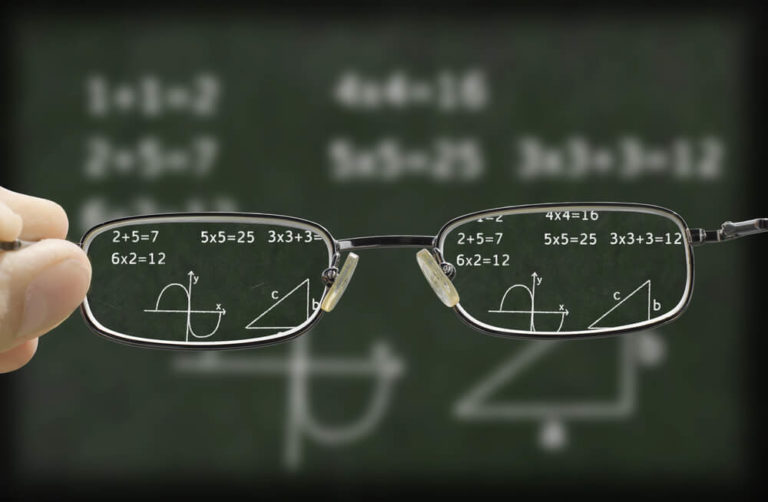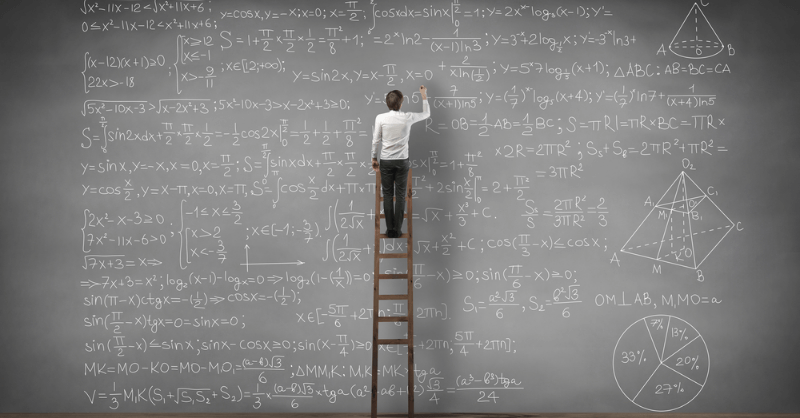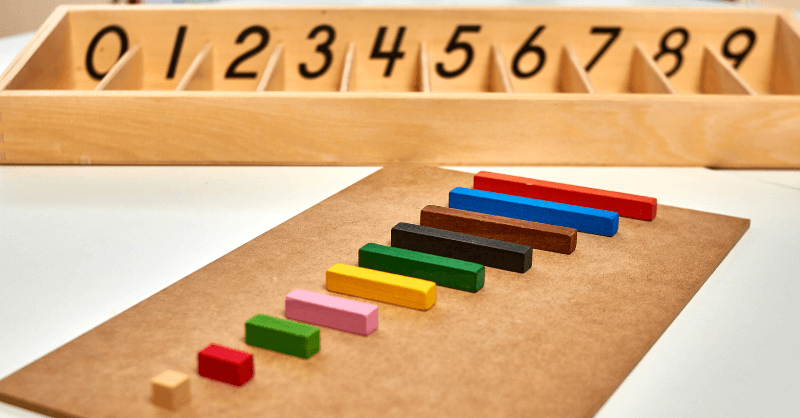Many people believe one is born with the talent to be good at math while others are just not. However, many studies have proved there’s no inherent mathematical ability; everyone can become proficient in math if they put in the effort and time. While it can be daunting, math is a kind of language that’d always have an answer. After all, numbers don’t lie. Looking to learn the Tips And Tricks To Become Better At Math. Read this blog to find out the best strategies to improve your math skills.
Understand The Topic Before Moving On To Another
Math is similar to reading because if you don’t know how your letter sounds, you have no chance of uttering words, so you’d be unable to read a phrase or a sentence.
All math courses follow a prescribed order since each topic builds on the preceding one. If you’re experiencing difficulty with a particular subject, work on it until you comprehend it and solve it. Don’t skip various topics because it might hamper your progress as you go on.
Watch video tutorials, attend math discussions, practice sample exercises, or even purchase a set of books presenting other ways of problem-solving. But don’t move on to the next topic if you still find the topic unclear. If you do, you’ll get even more upset and you’ll certainly begin to lose hope.
Be Math-Proficient!
Knowing how to apply basic math is critical for everyday living, future career, and employment opportunities. Significant studies on one’s ability to develop mathematical skills show it’s the same as any other skills one is capable of learning, so the hope isn’t lost if you find the subject challenging.
Here are some insightful tips and tricks that can help you excel in math:
1. Break Down Complex Problems
There’s always an easier way to solve a problem. Get to the heart of any complex math problem by identifying conceptual frameworks, isolating them, and practice solving the unknown. Try to make terms simpler by breaking them down to the most basic form.
For example, to take the measure of an angle, look for the easiest method to do this. Measuring the value of an angle within a triangle is uncomplicated when using the proper techniques. Once you’ve mastered the art of finding the unknown, you’ll know how to discover an unidentified variable using right angles, supplementary angles, and complementary angles.
Functional Skills Maths
Level 2 at £29 Only!
2. Master The Basic Math Skills
Calculations involving numbers, sizes, or other measures are considered basic math skills. These skills include the fundamentals like addition and subtraction as well as more advanced arithmetic ideas built on them. In addition to mastering basic math skills, having an experienced math tutor can greatly enhance your understanding of more advanced arithmetic concepts. In addition to mastering basic math skills, having an experienced math tutor can greatly enhance your understanding of more advanced arithmetic concepts. Possessing good mathematical abilities will benefit you not just in school learning but also in everyday life.
Basic math skills are the following:
Addition, subtraction, multiplication, division
To solve a math issue, it’s important to understand these four operations. You’ll need to know how to add, subtract, multiply, and divide simple numbers in your mind to perform anything math-related.
Fractions and decimals
Decimals are a component of a whole number while fractions are the numerical representation of the decimal. When fractions are introduced, it’s important to start with lower numbers like 1/4 as well as to follow the ratios (1:4, 1:25). A good way to improve your arithmetic abilities is to learn how to add, subtract, multiply, and divide fractions.
Percentage
It’s a component of the whole or a certain amount per 100. This is used when you’re working on chores like figuring out the discount, nutrition value, computing sales tax, interest rate in your bank savings, and more.
Visual representation of data
Numbers are commonly presented in various ways, so they can be better understood. To be able to read and interpret trends, you must have basic arithmetic skills. Having the capability to obtain a better grasp of underlying data, the ability to interpret the trend line, data points, and axes is important. Additionally, it’ll assist you in creating your graphs and charts, making it easier to communicate your ideas.

Solving the unknown
Knowing the value of an unknown variable is a common problem in algebra. In other words, if Juan has to earn USD$600 this month and he gets USD$20 each time he walks a dog for one of his neighbours, he’ll have USD$800 at the end of the month. He’d be motivated to figure out how many walks it’d take to earn the amount of money he needed. In the absence of more complicated mathematics, Juan might come up with a simple method to get the unknown variable in this equation (20x = 600) and then solve for the unknown. Similarly, an unknown value in a proportion can be calculated by cross-product of two fractions. You have to separate the variable from other quantities to get its value. A proportion calculator could be a handy tool to find the unknown value in a proportion.
3. Understand The Topic Before Moving On To Another
Math is similar to reading because if you don’t know how your letter sounds, you have no chance of uttering words, so you’d be unable to read a phrase or a sentence. All math courses follow a prescribed order since each topic builds on the preceding one. If you’re experiencing difficulty with a particular subject, work on it until you comprehend it and solve it or use a college assignment helper to cope with it. Don’t skip various topics because it might hamper your progress as you go on. Watch video tutorials, attend math discussions, practice sample exercises, or even purchase a set of books presenting other ways of problem-solving. But don’t move on to the next topic if you still find the topic unclear. If you do, you’ll get even more upset and you’ll certainly begin to lose hope.
4. Know The Importance Of Number Sense
Many people memorize math to learn the concept. This could also indicate they’ll be able to memorize the multiplication table. But when you experience a sudden surge of anxiety while taking an exam, you can forget anything you’ve previously remembered.
Instead, it’s more advantageous to have a solid understanding of number sense. For example, you may use 10×8 to comprehend what 8×9 is. Subtracting eight from 80 will lead you to 72 because you’re searching for groups of eight rather than ten.
If you’ve developed a good number sense, you can use that skill to make computations easier and gain confidence in approaching other scenarios of the same nature. You can identify if an answer is acceptable with good number sense and you can establish answers before using computation.
5. Have A Regular And Consistent Practice
Another tip to become good at math is to practice your math skills as often as possible. This means you have to spend some time solving math problems each day. The more you practice, the better you’ll become.
If you’re having trouble with math at school, you can get some extra help by talking to a teacher, finding some free online math tutors, or taking some functional math training courses. Math tutors can give you tips to break down complex equations and show you how to solve problems.
You can read about functional skills in our latest blog post, What are Functional Skills? From Theory to Practice.
6. Establish A Routine
To become better at math is to have a routine in solving problems and mastering the concept. If you learn how to solve, then it becomes easier for you to solve the same equation next time. This will save you time and work in the long run. This is especially true if you have a large problem to solve.
If you can get into a good routine with your math learning, you’ll not have to worry about repeating the same problem over and over again because you already master it. You’d notice patterns and trends as you repeat certain problems.
Are you having trouble with your math assignment? Do you need some help figuring out how to solve complex equations or understanding new concepts? We can help! Our team of STEM experts can provide you with the assistance you need to get your mathematics homework done quickly and accurately. From basic arithmetic to calculus and beyond, we have the skills and experience to tackle any math assignment you may have. Ask us, “Do my math assignment,” and let us do the work for you so you can focus on other things. Contact us today and find out how we can help with your next math homework!
7. Focus On Understanding New Concepts
To successfully complete mathematical problems, you can remember equations and rules, but this doesn’t imply you’ve understood the principles behind what you’re doing. As a result, it becomes more difficult to solve issues and to learn anything new. The more time you take to focus on understanding new concepts, the more proficient you’ll be in your arithmetic skills.
Starting to deal with other math problems straight away might result in frustration and confusion. Always pay attention in classes or math tutorials and look for the simplest math details and formulas that’ll help you in your studies.
Additionally, it’s also highly recommended you spend time practicing math problems your professors offer before finishing any assignments. Learning this will offer you an opportunity to fully comprehend what you’ve learned.
8. Create A Practice Math Test
Math study sessions should incorporate solving problems and assessing one’s understanding by going through examples and practice questions.
The best technique to study math is to use practice exams. Simulate a test you could encounter in the future or collect past practice questions and construct a mock exam for you to complete. This will provide you an opportunity to solve real exam questions in advance.
9. Write Down Each Math Step
Most people will try to solve math problems in their brains. However, complicated math problems would need you to go through several kinds of information and make many deductions before arriving at a solution. Attempting to do everything at once can cause you to be confused and frustrated.
Work through a math problem step-by-step while writing it down to direct you through the solving process. As you become more advanced, this approach will become useful as you work through increasingly difficult math issues, which enables you to go through step-by-step. If you make a mistake, you can go back and look at your steps to learn from them.
10. Practice Mental Math
Mental calculation performance gives considerable advantages in some situations. Mental arithmetic improves one’s brainpower. The number to quantify the environment around you improves logical and intuitive thinking. Strengthening your foundation by practicing mental calculations will help you gain a deeper understanding of more difficult concepts.
For example, calculating how much to tip a waiter at a restaurant is a simple arithmetic issue many individuals are unable to solve without the use of a calculator. By training your brain to answer simple math problems, you can save time in circumstances such as these.
Take note, mental math is different from memorizing mathematical information such as multiplication tables. It’s made simpler with a foundation of remembered solutions to elementary math problems, but executing it in your brain takes both learned knowledge and manipulation of numbers and operations to solve. This combination of ability and memory enables you to solve far more complicated problems than can be solved with readily memorized knowledge.
11. Download Useful Math Apps
There’s an undeniable connection between math, technology, and entertainment. One way to make sure you excel in math is to engage with the right learning tools, programs, and online math games. As many students are already becoming glued to their cell phones, it makes perfect sense to use a math app or online math game that both teaches and entertains.
The iPhone and Android operating systems offer a plethora of popular math programs and online math games for students to download. Take advantage of free math apps and online math games as you start to feel more confident in your skills while practicing the basic concepts during your free time. These platforms are particularly advantageous as most of them provide instant feedback and answers on how to solve the problems, making learning interactive and fun.
12. Apply Math Problems In Real-World Challenges
To make math more relevant, apply them to real-world challenges. Some people find math to be both abstract and unrelated to the world. Even if this is true up to some extent, it doesn’t have to be seen that way. For instance, the Pythagorean Theorem refers to the relationships between different-sized forms, so try to apply it in everyday stuff involving triangles. Try to improve your math skills by figuring out ways to apply whatever you learn to your own life.
13. Consider Enrolling In Private Math Tutorials
Math tutoring can also make you understand different topics in much greater depth. For example, some students who fail may not realize the main problem lies in the weak grasp of basic concepts. Through the assistance of a tutor, one will be able to see how various topics are related to each other. This will help them improve their understanding of math, making their skills more efficient.
Math can be hard enough as it is, but with the guidance of an experienced math tutor, you’ll have the opportunity to learn at your speed. So if you have struggles in math, then private math tutoring can provide the resources you need to be successful. Whether you’re looking for a way to make you more competitive or you simply want to have access to the tools you need to succeed, then private math tutoring can provide what you need.
Functional Maths
Training Course Level 2
at £29 Only!
Conclusion
If you want to do well in math, then you should think logically and not just superficially. Once you’ve been exposed to this way of thinking, you’ll most likely take the subject more seriously. Although there are many ways you can do to be better at math, there’s no silver bullet. You have to work through one step at a time, but the more you practice, the better you’ll be at it.
Use the suggestions above to become better at math, and you’ll have more confidence to apply concepts in real-life situations.
For innovative educational resources to supplement your curriculum, consider exploring Science and Literacy. Here, you’ll find an extensive collection of insights for both educators and parents. The platform offers various tips and strategies to enhance the teaching process, support professional development, and improve student engagement.
FAQs
1. In mathematics, how can you say that a person is perfect?
In mathematics, perfection can be observed through a person’s ability to solve problems accurately and efficiently, demonstrate a deep understanding of mathematical concepts, and apply those concepts to various real-world situations. Additionally, proficiency in mathematical reasoning and critical thinking skills is indicative of mastery in the subject.
2. How to be a good mathematics student?
To become a better mathematics student, tips and tricks can be employed. These include practicing regularly, seeking help when needed, and breaking down problems into smaller parts. Techniques like using visual aids and real-life examples can also aid understanding. Additionally, staying organized and managing time effectively are crucial for success in mathematics.
3. What is the best way to improve maths?
The best way to improve math skills is by practicing regularly and solving various types of math problems. Different methods and techniques can be used, such as online resources, textbooks, and working with a tutor. Additionally, seeking help from peers or joining study groups can provide valuable support. Math improvement is achieved through consistent effort and dedication, which allows for gradual progress over time.
4. How can I get better at hard math?
To improve at difficult math, practice regularly, review challenging concepts, and seek help when needed. Hard math skills are honed through consistent effort, with difficult concepts understood through repetition and clarification from resources or mentors.
5. How to get smarter in math overnight?
Getting smarter in math overnight is not possible, but there are strategies to improve quickly. Regular practice, seeking help from online resources or tutors, and using tricks and shortcuts can contribute to enhancing math skills rapidly. By combining these approaches, individuals can see noticeable improvements in their math abilities in a short amount of time.
6. What is the best way to study math?
The best way to study math, according to the content found on One Education, is by practicing regularly, breaking down problems into smaller parts, seeking help when needed, and staying organized with notes and materials.
7. How to be good at math without studying?
Improving math skills without studying directly involves engaging in regular practice, solving puzzles, and applying mathematical concepts in real-life scenarios. Through these activities, one can passively enhance their math abilities over time.
8. How to get % in math?
Regular practice, seeking help when needed, and utilizing online resources like tutorials and practice tests can contribute to achieving better scores in math. Additionally, staying organized and managing time effectively are important factors for improving performance in math.








 June 14, 2023
June 14, 2023
















